How drive-ins and 'virtual cinemas' became a lifeline for indie films during the pandemic
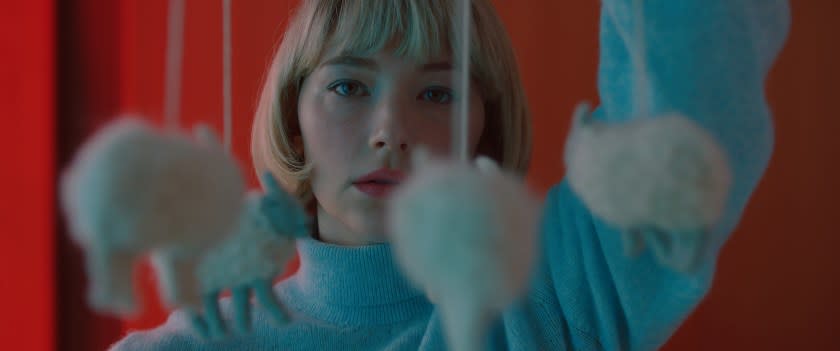
When movie theaters across America began shuttering in March because of the COVID-19 pandemic, John Watzke of Ocala, Fla., didn’t waste time. Hailing from a long line of projectionists, he’d seen the industry go through generations of immense change. As the owner of the Ocala Drive-In since 2011, he listened to his customers, mostly families who frequented the central Florida theater for its kid-friendly programming, parking their cars in front of its two screens for $6 double features every night of the week.
Keeping the drive-in open as megaplexes across the country shut down, he fielded safety concerns and swiftly implemented changes, including a walk-up concessions window, interior Plexiglass partitions, social distancing between cars and additional no-contact food delivery methods, Watzke said last month. But other challenges arose.
Studios had rapidly scuttled openings of such titles as MGM’s Bond flick “No Time to Die,” Universal’s “Fast 9” and Disney’s “Mulan” — the kind of action-driven or family-friendly blockbusters that drive-ins bank on to bring in seasonal audiences. So Watzke did something he had rarely done in the past: He started contacting smaller distributors and programming indie titles like the art-house thriller "Swallow," the World War II drama "Resistance" and the supernatural horror film "The Wretched."
“I had to do something,” said Watzke. “I had to have movies.”
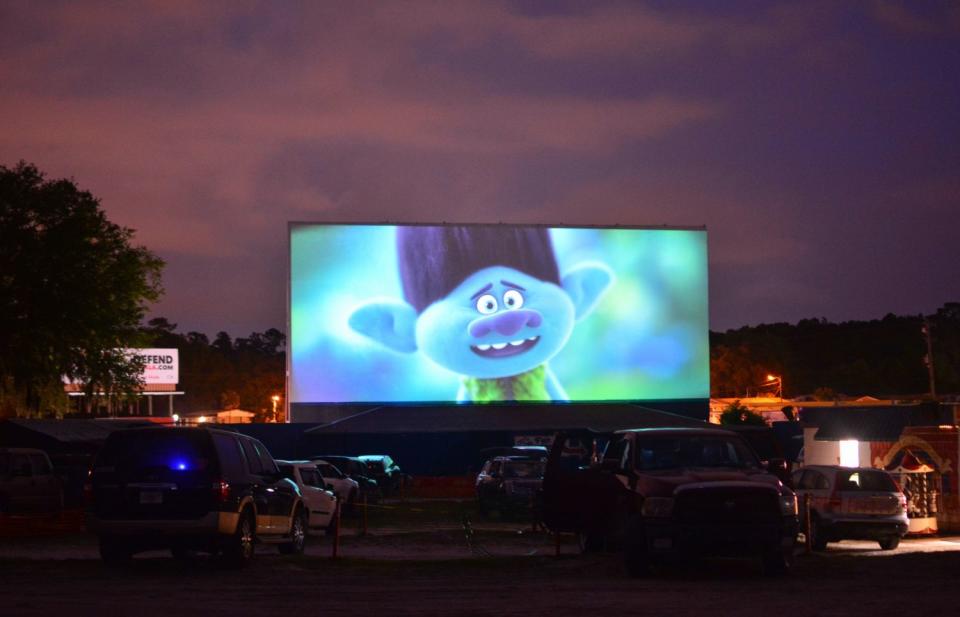
Even as studios left an unprecedented gap in the release calendar, a few daring indie distributors stuck around to take a chance with any screens available. The grosses that have been reported are bleak by usual standards. (The major studios, however, have opted not to officially report their box office. That includes Universal and its specialty division Focus, both of which released new titles simultaneously to premium video on demand and some theaters this spring.) But in the indie realm, success is often relative.
For most indie distributors, nimble, hybrid release plans were already the norm in a crowded landscape dominated by studio fare and tough competition for screens. During a pandemic, different strategies were necessary. And necessity, in some cases, created new opportunities.
Not long into the shutdown, specialty distributor Kino Lorber launched Kino Marquee, a virtual initiative releasing films in partnership with art-house theaters and institutions. Splitting revenue from digital "ticket" sales with theaters unable to operate as normal, the program began with the Cannes-winning import "Bacurau."
Kino had already been developing its own proprietary digital platform, said Wendy Lidell, senior vice president of theatrical distribution. The company was well positioned to pivot to a model in which its theatrical partners, now numbering around 400 and including Alamo Drafthouse and Laemmle Theaters, could stream Kino's virtual titles to their respective audiences for $12 a pop.
“We want them to survive, because they’re our partners. If they go out of business, that’s not good for us," said Lidell. "And it’s an efficient way to market, because they have their own audiences that they have cultivated over the years. It’s a much more cost-effective way for us to reach those audiences."
Neon took a similar approach with "Spaceship Earth," a documentary about a team of "biospherians" who embarked on an experiment to live inside a replica of the Earth's ecosystem in the '90s. Launching virtual cinemas hosted by partner theaters, museums and other businesses, the multipronged plan included video on demand and Hulu releases, a large-scale projection on the side of a building in New York with a live-streamed filmmaker Q&A and engagements at select drive-ins.
"The biggest shift in our thinking when this all happened was, 'How do we make something special and complete and community oriented and still keep an audience together when there is no cinema?'" said Elissa Federoff, Neon's president of distribution. "How do we create an event out of it and bring people together and still give them the reward of seeing a movie when they’re stuck at home?"
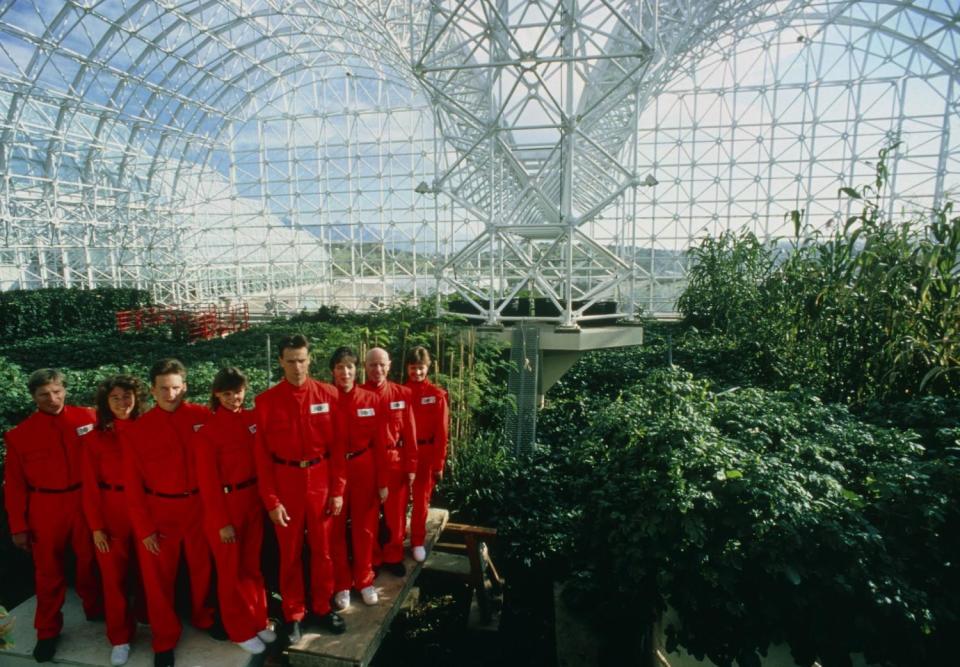
The availability of drive-in screens, paired with a diversified distribution model and a lineup peppered with genre titles opened yet different doors for IFC Films, said Co-President Lisa Schwartz, whose team moved forward with nearly all its full spring slate intact. In the last four months, IFC has released eight new titles domestically, more than any other distributor, leaning heavily into drive-ins.
"Everybody was pulling out of the marketplace," said Schwartz. "Suddenly, you had really great independent films that were probably getting more placement, awareness and visibility because there wasn’t as much new product during that period."
Learning from an early setback also helped their adaptive approach. The company had opened "Swallow," a provocative psychological thriller starring Haley Bennett as a woman who compulsively ingests objects, on March 6 simultaneously in theaters and on premium VOD. A week and a half later, cinema closures were ordered in Los Angeles and New York — the two cities where "Swallow" was screening.
The film's visibility, however, was still driving awareness to the digital release, said Arianna Bocco, IFC's executive vice president of acquisitions and productions. "We kept it up on premium VOD and really understood that there were some opportunities, vis-à-vis publicity and press and interest that we were generating, from continuing to have the film in release," Bocco said.
Enter the drive-in. According to the United Drive-In Theatre Owners Assn., there were 305 drive-ins with 549 screens in the U.S. as of October. A fraction of those remained open when the shutdowns began, distributors say. IFC had not historically had a presence at the open-air venues, but staff got creative and began making calls, says Schwartz. The company's next film, "Resistance," starring Jesse Eisenberg as French mime Marcel Marceau, was released on digital and VOD in March before opening theatrically April 17 at a single spot in the U.S. — the Ocala Drive-In.
The week previous, the screen Watzke reserves for family fare featured Universal's "Trolls World Tour" and "E.T. The Extraterrestrial," one of several beloved library titles studios have made available to exhibitors during the pandemic. On the other, he'd booked an IFC Films double bill of "Swallow" and "The Other Lamb," a horror tale about a young woman trapped in a religious cult.
With indoor theaters closed elsewhere in the state, Watzke saw new customers coming to his drive-in in droves, some traveling great distances. They weren't necessarily there to see specific films, he thinks, but to get out of the house and enjoy a sense of normalcy with their families for a night. Still, having new films to see helped.
"They were seeing something that reminded them more of a normal life," said Watzke. "I don’t care what the disaster is, you have to have a certain amount of normalcy."
On the other side of the country, Frank Huttinger of DeAnza Land & Leisure Corp., which owns multiple drive-in theaters in Southern California, Georgia and Utah, including the Mission Tiki in Montclair, was seeing similar results as he booked indie films he would not otherwise have played.
"The drive-in audience likes action and adventure, big broad comedies, thrillers and horror movies — that’s our bread and butter," he said of the studio films, backed by big budgets and marketing campaigns, that would typically play at DeAnza's locations during spring and summer.
A surprise hit was indie horror flick "The Wretched," about a child-stealing witch. Initially opening at 11 drive-ins nationwide, including the Mission Tiki, the IFC Midnight release earned $1.6 million from theatrical engagements. But not all films are as suited for drive-ins, like the Steve Coogan comedy sequel "A Trip to Greece," for which IFC partly drove awareness by promoting the previous three installments on its own subscription VOD service.
"I think the drive-in story is incredible, and we certainly hope that it lasts," said Bocco. "But we understand that when studio movies and Marvel movies and the action films come back, at drive-ins, they’ll likely take up that space, and it will be tougher for us to get our films in. At the same time, we’ve developed relationships that we didn’t have before and that means a lot."
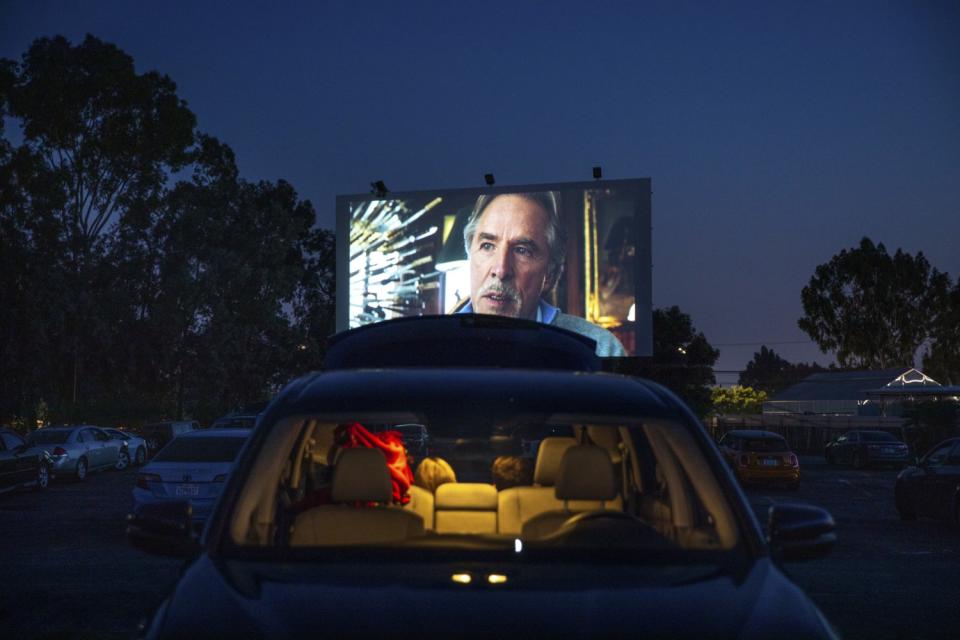
While the drive-in is enjoying a resurgence, there are drawbacks. Because of social distancing, drive-in theaters that would normally hold 1,000 cars might now have space for only 500, said Huttinger. Reaching capacity in recent months, he's had to turn lines of cars away from the Mission Tiki, which at one point was the sole operating DeAnza location as local jurisdictions forced other theaters to temporarily close because of COVID-19.
Pop-up drive-ins are materializing around the country, including one featuring a Tribeca-curated screening series at the Pasadena Rose Bowl and other venues hosting modern classics like "Love & Basketball," "The Bodyguard" and a 45th anniversary screening of "Jaws." Amazon Studios and Michael B. Jordan's Outlier Society have partnered to present a summer drive-in series at 20 locations around the country, including the Vineland Drive-In in City of Industry, with such films as "Get Out," "Spider-Man: Into the Spider-Verse" and "Creed."
Drive-in operators hope studios will soon resume releasing their bigger new titles, like "Tenet," the sci-fi tentpole whose theatrical date Warner Bros. keeps shifting as the industry keenly watches and waits.
As to drive-ins, it's not just indie films. Amid the pandemic, drive-ins have also become destinations for socially distanced musical concerts, weddings and other events.
With that in mind, Watzke's been thinking further outside the box. Because of social distancing, his capacity has gone from 435 cars between his two screens to 270. He recently booked an Elvis tribute musician to "open" onstage before a sold-out Garth Brooks concert event, and he's now considering more musical fare. His theater has even hosted a local chamber of commerce meeting, he said by phone while preparing to welcome more than 200 visitors later that day for a dance school recital where families would watch their kids' prerecorded performances on the Ocala's five-story-tall screen from the safety of their cars. It was the third he’d booked to date.
“Not only did they have their recital, but they were on the biggest screen in Florida," he said.
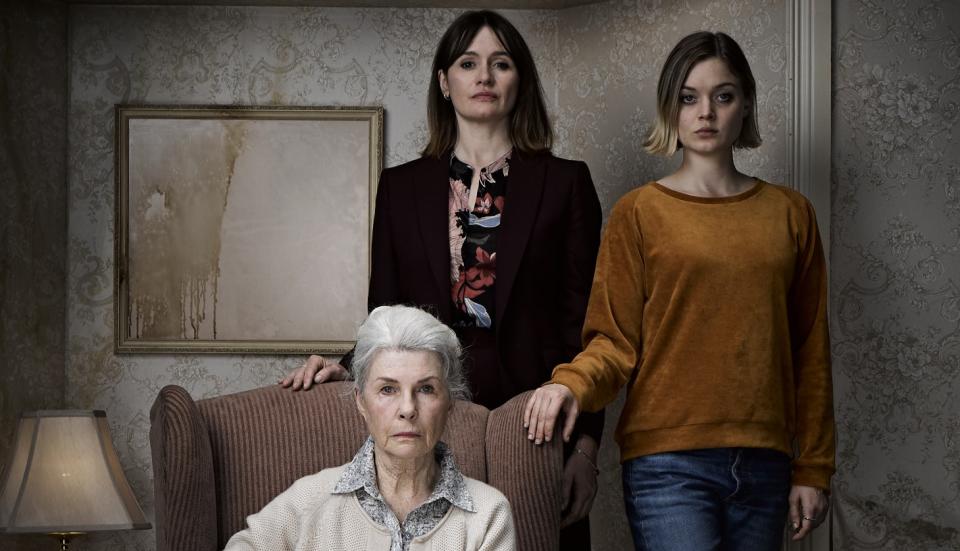
Meanwhile, a one-week exclusive run at drive-ins, beginning July 3, of the new IFC horror film "Relic” helped the title from writer-director Natalie Erika James score a pre-VOD box office of $282,600. Neon and Hulu's indie rom-com “Palm Springs,” starring Andy Samberg and Cristin Milioti, is scheduled to open on Hulu and at select drive-ins on July 10, including the Mission Tiki.
Despite the unexpected successes of recent months, Huttinger confirms that the theater — which had previously been sold to an industrial developer — is still on track to close after this year.
"It’s a strange time right now, with the success that we’re having," said Huttinger. "I get inquiries all the time — ‘How can I make a drive-in? I’d like to build a drive-in.’ — and I say, ‘Do you own the land? How far are you from a major metropolitan center? Do you have $1 million per screen to build it out with snack bars and restrooms and paving and fencing and box office equipment and projection and everything that you have to do?’
"If you own a piece of property that’s worth, say, $30 million for somebody to build offices or apartment houses or something on and you go, ‘Well, what’s your rate of return?’" he said. "You don’t know. You just don’t know."

